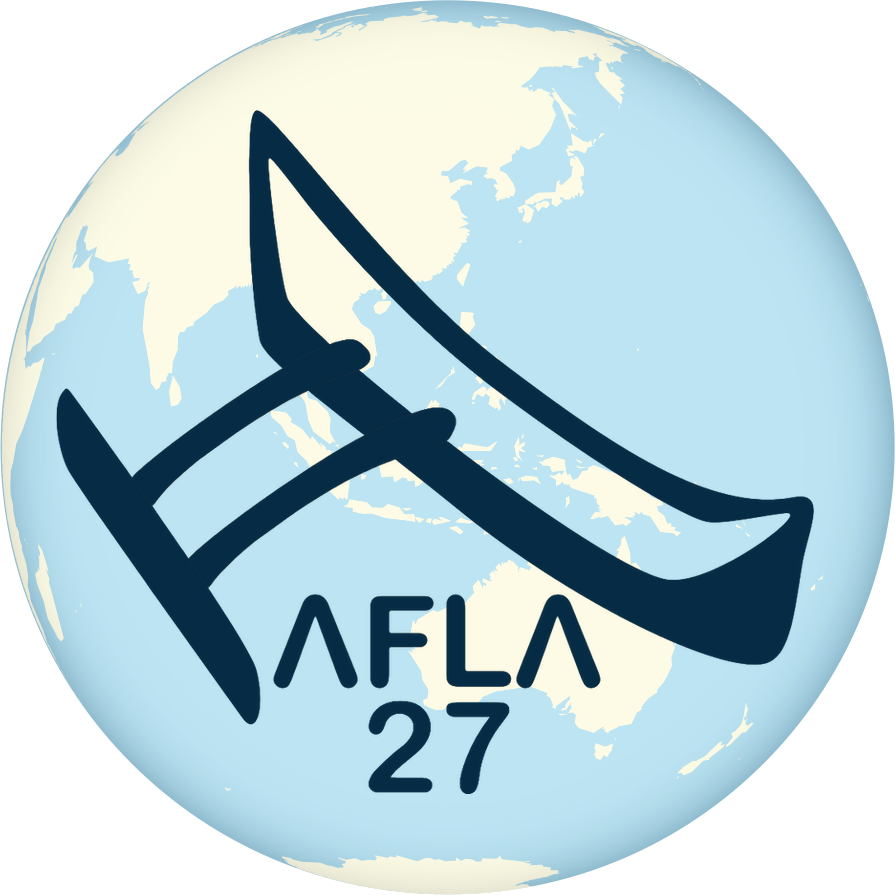Monday, August 10, 2020. 11pm (Singapore Time)
Report on AFLA 27
- 40 abstracts were received; 24 accepted (1 declined); 23 talks to be presented
- 5 invited talks — we decided to showcase some relatively junior scholars
- Obviously we had to switch to a virtual format, and made some executive decisions along the way. We will see how it goes!
- We received generous funding from the Singapore Ministry of Education and NUS. We successfully converted some of these funds to offer our invited speakers honoraria.
Proceedings volume
- For Proceedings of AFLA 27, we agreed to ask Ileana Paul to host the Proceedings at Western University, just as she has done for Proceedings of AFLA 26. We intend to use the same formatting specifications. NUS will hire students to take care of copyediting, supervised by organizers, hopefully lightening the load on Ileana and Western University.
- Advantages of hosting it on Western: can be published relatively quickly and at lower cost.
- Andrew Simpson has expressed interest in an Austronesian-themed special issue of Journal of East Asian Linguistics featuring a selection of papers from work presented at AFLA.
- Jozina vander Klok: great idea if team at NUS is willing to take up editing. Would also be nice to see more Austronesian languages on JEAL.
- Question: how to select papers? Suggestion: local organizers will make a selection, in consultation with JEAL.
- Diane Massam: This special issue definitely can coexist with proceedings. Good talks will be invited to write a longer extended paper for the special issue.
On future AFLAs (notes reorganized by topic)
Consensus feeling about 2021:
- Hard to imagine that AFLA will be held in person in 2021.
- But continuity of AFLA is important; don’t skip a year.
- General agreement to target a virtual format for the next meeting.
Organization
- Suggestion: a few frequent AFLA attendees just come together to organize and host virtually; no need to identify “local organisers”
- Eric Potsdam: If mitcho and team organizes AFLA again, there will be advantages for resources and systems already in place for hosting the conference online. But it’s a good idea to involve other people in planning subparts of the conference.
- Henrison Hsieh: Lisa Travis and Jessica Coon at McGill might have been talking about the possibility of hosting AFLA some time.
- Suggestion: Co-hosting between NUS and McGill (Jessica Coon, Lisa Travis, and students)
- To do: reach out to McGill to discuss this possibility
Funding
- Lauren Clemens: How much does it cost to run AFLA in this virtual format?
- mitcho: Pro Zoom account necessary, but we didn’t pay for it at NUS. Honoraria and hiring some students are nice but not necessary. So maybe technically zero. It’s just a lot of labor.
- Matt Wagers: CUNY adopts a sponsorship mechanism, with money used to support student presenters. If funding is an issue, perhaps that model could be considered.
- mitcho: We have funds from this year which could potentially be used to support the next AFLA meeting online, but would like to have others onboard to lead its organization.
Timing of next AFLA
- Some concern that there are fewer new projects because of the difficulty of carrying out fieldwork; general delays to research during the pandemic
- mitcho: assuming AFLA 2021 happens online, it might not be a huge concern that there are fewer talks. Virtual format allows for more flexibility. Speakers will probably still benefit from feedback: more people will be able to hear the talk since it’s online.
- Lauren Clemens: fewer talks would also be good for dealing with different time zones
- Matt Wagers: suggestion – instead of presenting only new work, perhaps we could invite speakers to give workshops or lectures on topics of interest.
- Consensus: Continuity of AFLA (not skipping a year) is more important than volume of new work
Thoughts on virtual formats
- Jozina vander Klok: APLL enjoyed a larger audience because of the online format: something like 30-40 more than usual.
- To do: team at NUS to keep track on attendance and report attendance rates
- Jozina vander Klok: Extended QnA sessions worked very well for APLL: it provided opportunity for extended conversations and discussion
- To do: team at NUS to implement this at this year’s AFLA
- Diane Massam: suggestion to solicit feedback from attendees of AFLA this year
- To do: team at NUS to follow up on this after the conference
- We welcome suggestions on what kinds of questions to ask to get good feedback.
